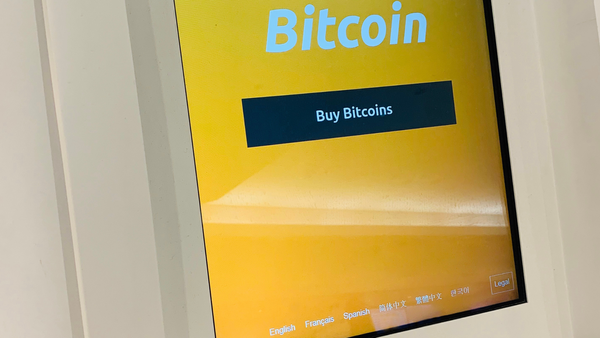The Evolving Global Scam Landscape: Expert Insights from Jorij Abraham, Director of GASA

The digital era has opened opportunities for both consumers and criminals alike. Scams have grown in complexity, exploiting vulnerabilities created by new technologies and shifting social trends.
We spoke with Jorij Abraham, the Director of the Global Anti-Scam Alliance (GASA), to offer you insights on the most prominent scam trends and how you can protect your livelihood in this increasingly dangerous online landscape.
The Merging of Scam Types
One of the most notable trends observed by Abraham is the blending of different scam types.
Traditionally, romance scams and investment scams were separate entities, but they have merged recently. Scammers who build trust through romance scams now persuade victims to invest in fraudulent schemes.
“Romance scams used to be about getting money from a victim to travel towards you or pay for a medical emergency,” Abraham explains. “Now we see that scammers who have built a relationship of trust convince the victim to join in an investment”.
This blending of scams reflects how adaptable scammers are, constantly finding new ways to exploit their victims.
The Role of AI and Deepfakes in Scamming Consumers
AI has radically changed the scamming landscape, raising the bar for how sophisticated these schemes can become.
On the topic of AI scams, Abraham stresses that “it’s becoming impossible for the consumer to recognize scams” due to AI advancements.
Scammers are using AI to craft flawless emails, text messages, and even fake voicemails from family members, urging victims to transfer money. The emergence of deepfakes adds an even more dangerous layer to scams. Abraham notes that financial managers have transferred large sums of money after being convinced that their CEO gave them direct instructions via a deepfake video call.
“AI is being used in all facts of the scam. From a text message or email in perfect English (or any other language), photos of non-existent, but very cool, products, voice mails from family members asking to transfer money immediately to solve an urgent calamity, to deep fakes that convince both financial managers to transfer large sums of money, thinking their CEO just told them in a video call,” Abraham noted.
Targeting Vulnerable Industries
Scammers show no bias when selecting their targets—any industry with valuable consumer data is at risk.
According to Abraham, scammers often use the names of well-known brands, such as Facebook, Amazon, or major banks, to gain access to personal information. This approach allows them to exploit the trust consumers place in these brands. Abraham’s advice is simple: “Be cautious when interacting with brands and always verify communications, even if they appear legitimate.”
“I would recommend always use your gut feeling. Is the offer maybe to good to be true? When in doubt, stop and discuss the offer being made with friends and family. Together, you can recognize scams far better than alone.”
Scams Tailored to Demographics
Scammers have also become expert marketers, targeting specific demographic groups with tailored scams that makes them all the more dangerous.
“Roblox scams for children, fake loans for students, gadget scams for 30+ males, romance scams for women 40+ and single, and investment scams for the elderly are just a few examples,” Abraham pointed out.
Scammers continuously improve their tactics, becoming experts in targeting specific segments of the population. The tailored nature of these scams makes them even more persuasive.
Major Events Make Fertile Ground for Scammers
Global events such as elections or international sports events are prime opportunities for scammers to launch new fraudulent schemes.
“Scammers use any event or crisis to launch new scams,” Abraham says, citing examples like fake masks during the COVID-19 pandemic and donation scams during the Ukraine war. Abraham predicts scammers will exploit the upcoming US elections by offering fake tickets or "survival kits" that never arrive.
“I expect scammers to offer tickets to the inauguration event of the new US president, whoever it may be, and offer survival kits to the ones who believe there will be riots -- which will never be delivered,” he explained.
Consumers should remain vigilant during these times, knowing that scammers will use current events to their advantage.
The Role of Social Media and Online Marketplaces in the Scam Economy
Social media platforms and online marketplaces have become central command posts for scammers.
Abraham acknowledges their crucial role in facilitating scams but also points to the solutions emerging to counteract these activities. Tools like “Know Your Customer” processes and data feeds from organizations like ScamAdviser are already helping to remove scam links. However, Abraham suggests that the platforms' own communities could play a more active role in identifying and reporting fraudulent content. With proper vetting processes and increased user awareness, social media platforms can help reduce the impact of scams.
The Rise of AI-Driven Mass Scamming
Looking ahead, Abraham foresees a sharp increase in AI-driven scams. “We are only at the beginning of the rise of AI as a tool by scammers,” he says.
The ability to fake SMS messages, texts, voices, and videos is just the start. As AI tools become more accessible, Abraham predicts a future where scammers use AI on a large scale to deceive millions at once. The only way to combat this, he believes, is by using AI to fight AI. Personal AI systems will eventually scan texts, calls, and video messages to verify their authenticity before they ever reach consumers.
Bitdefender’s Role in Combating Global Scams
As a member of GASA, Bitdefender has taken a leadership role in the global fight against scams. Working alongside organizations like GASA, Bitdefender is dedicated to safeguarding individuals and businesses from the evolving threat of cybercrime. With Bitdefender’s comprehensive security solutions, users are empowered to detect and block fraudulent activity before it can cause actual harm.
Throughout our 20+ years leading the cybersecurity industry, we have introduced multiple anti-scam protection layers that detect and prevent scam attempts in real-time on various channels, including:
- Web Protection to help you secure your browsing activity and ensure you don’t fall on fraudulent websites and platforms
- Email Protection to guard your inbox against phishing attempts
- Scam Alert to tackle scams targeting mobile devices through real-time monitoring of fraudulent SMS, chats, and notifications
- Scamio, our AI-powered on-demand scam detector that uses innovative threat-detection algorithms and machine learning to identify scams. You can access Scamio on any device or operating system via web browser, Facebook Messenger, or WhatsApp. The scam detection tool is free to use and offers a user-friendly interface where users can check if any suspicious correspondence they have received is a scam attempt, or they can describe a conversation or scenario to receive a verdict in seconds. You can also help others stay safe by sharing Scamio with them in France, Germany, Spain, Italy, Romania, Australia, and the UK
tags
Author
Alina is a history buff passionate about cybersecurity and anything sci-fi, advocating Bitdefender technologies and solutions. She spends most of her time between her two feline friends and traveling.
View all postsRight now Top posts
How Do You Manage Your Passwords? We Ask Netizens
December 18, 2025
Cybercriminals Use Fake Leonardo DiCaprio Film Torrent to Spread Agent Tesla Malware
December 11, 2025
FOLLOW US ON SOCIAL MEDIA
You might also like
Bookmarks







